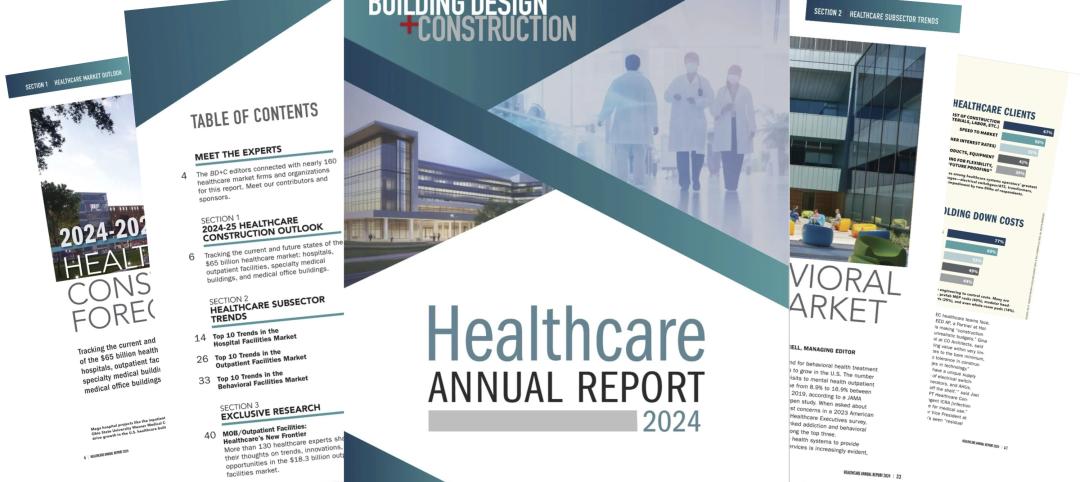The International Code Council (ICC), the American Society of Heating, Refrigerating and Air Conditioning Engineers (ASHRAE), the U.S. Green Building Council (USGBC), and the Illuminating Engineering Society of North America (IES) today announce the launch of the International Green Construction Code (IGCC), representing the merger of two national efforts to develop adoptable and enforceable green building codes. The IGCC provides the building industry with language that both broadens and strengthens building codes in a way that will accelerate the construction of high-performance, green buildings across the United States.
For decades, ICC and ASHRAE have worked to develop codes and standards that become the industry standard of care for the design, construction, operations and maintenance of residential and commercial buildings in the United States and internationally. In coordination with the efforts of ICC and ASHRAE, USGBC has been leading a nationwide green building movement centered on the LEED Green Building Rating System since LEED was launched in 2000. The convergence of these efforts in the IGCC is perhaps the most significant development in the buildings industry in the past 10 years.
Leveraging ICC's unrivaled delivery infrastructure to reach all 50 states and more than 22,000 local jurisdictions and ASHRAE, USGBC and IES's technical strengths, this partnership will accelerate the proliferation of green building codes and standards developed jointly by ICC, ASHRAE and USGBC and IES, across the country and around the globe. The newly launched IGCC establishes a previously unimaginable regulatory framework for the construction of high-performance, commercial buildings that are safe, sustainable and by the book.
A landmark addition to the technical content of the IGCC is the inclusion of ANSI/ASHRAE/USGBC/IES Standard 189.1, Standard for the Design of High Performance, Green Buildings Except Low-Rise Residential Buildings, as an alternate path of compliance. Standard 189.1 is a set of technically rigorous requirements, which like the IGCC, covers criteria including water use efficiency, indoor environmental quality, energy efficiency, materials and resource use, and the building's impact on its site and its community. Standard 189.1 was written by experts representing all areas of the building industry, who contributed tens of thousands of man hours. Developed in a little over three years, the standard underwent four public reviews in which some 2,500 comments were received.
"The emergence of green building codes and standards is an important next step for the green building movement, establishing a much-needed set of baseline regulations for green buildings that is adoptable, usable and enforceable by jurisdictions," said ICC Chief Executive Officer Richard P. Weiland. "The IGCC provides a vehicle for jurisdictions to regulate green for the design and performance of new and renovated buildings in a manner that is integrated with existing codes as an overlay, allowing all new buildings to reap the rewards of improved design and construction practices."
"Bringing together the code expertise of ICC with technical expertise of ASHRAE to create a comprehensive green building code will accelerate our transformation to more sustainable building practices," Gordon Holness, ASHRAE president, said. "ASHRAE is committed to providing the design guidance building designers and engineers need to reduce the energy consumption of buildings."
"The U.S. Green Building Council's mission is market transformation and we've long recognized the need to reach beyond the market leaders served by LEED to accomplish this goal," said Rick Fedrizzi, President, CEO and Founding Chairman of the U.S. Green Building Council. "Broadening the scope of the codes and establishing a higher floor allows us to continue to raise the ceiling, a critical factor in how the building industry is working to mitigate climate change. We are thrilled to see this set of complementary green building codes and standards; our organizations working collaboratively will advance green building nationwide in a way that was never before possible. "
"IES is pleased to support the collaborative efforts of the organizations which demonstrate expertise in code and technical standards development in this comprehensive green building code," said Rita Harrold, IES Director of Technology. "IES looks forward to ongoing guidance for sustainable building practices."
On Monday, March 15, ASHRAE, IES and USGBC will join ICC at its Washington, D.C., headquarters as they and their co-authors (the American Institute of Architects and the American Society for Testing Materials) launch the IGCC. On Monday, Standard 189 .1 and the IGCC will be available for wide distribution, providing much-needed content, code language, and vision for more safe and sustainable future. The organizations are also working together to advance related education and advocacy efforts to promote adoption, enforcement and compliance with the IGCC codes that will pave the way for green buildings and neighborhoods, while creating jobs and strengthening the economy.
For more information on IGCC: http://www.iccsafe.org/cs/IGCC/Pages/default.aspx and on Standard 189.1: www.ashrae.org/greenstandard.
Related Stories
Codes and Standards | Jul 15, 2024
New York City code update changes definition of a major building
Changes affecting how construction projects in New York City are permitted will have significant impacts for contractors. On Dec. 11, the definition of a major building in the city’s code will change from 10 stories to seven, or 75 feet. The change will affect thousands more projects.
Adaptive Reuse | Jul 12, 2024
Detroit’s Michigan Central Station, centerpiece of innovation hub, opens
The recently opened Michigan Central Station in Detroit is the centerpiece of a 30-acre technology and cultural hub that will include development of urban transportation solutions. The six-year adaptive reuse project of the 640,000 sf historic station, created by the same architect as New York’s Grand Central Station, is the latest sign of a reinvigorating Detroit.
University Buildings | Jul 11, 2024
3 considerations for designing healthy, adaptable student dining
Amanda Vigneau, IIDA, NCDIQ, LEED ID+C, Director, Shepley Bulfinch, shares three ways student dining facilities have evolved to match changes in student life.
Healthcare Facilities | Jul 11, 2024
New download: BD+C's 2024 Healthcare Annual Report
Welcome to Building Design+Construction’s 2024 Healthcare Annual Report. This free 66-page special report is our first-ever “state of the state” update on the $65 billion healthcare construction sector.
Transit Facilities | Jul 10, 2024
Historic Fresno train depot to be renovated for California high speed rail station project
A long-shuttered rail station in Fresno, Calif., will be renovated to serve as the city’s high speed rail (HSR) station as part of the California High-Speed Rail Authority system, the nation’s first high speed rail project. California’s HSR system will eventually link more than 800 miles of rail, served by up to 24 stations.
Government Buildings | Jul 8, 2024
GSA adopts new accessibility guidelines for federal properties
The U.S. General Services Administration (GSA) adopted a new rule with new accessibility guidelines for federal buildings. The rule establishes that pedestrian facilities in the public right-of-way are readily accessible to and usable by people with disabilities.
Office Buildings | Jul 8, 2024
Office vacancy peak of 22% to 28% forecasted for 2026
The work from home trend will continue to put pressure on the office real estate market, with peak vacancy of between 22% and 28% in 2026, according to a forecast by Moody’s.
Virtual Reality | Jul 8, 2024
Can a VR-enabled AEC firm transform your project?
With the aid of virtual reality and three-dimensional visualization technologies, designers, consultants, and their clients can envision a place as though the project were in a later stage.
Green | Jul 8, 2024
Global green building alliance releases guide for $35 trillion investment to achieve net zero, meet global energy transition goals
The international alliance of UK-based Building Research Establishment (BRE), the Green Building Council of Australia (GBCA), the Singapore Green Building Council (SGBC), the U.S. Green Building Council (USGBC), and the Alliance HQE-GBC France developed the guide, Financing Transformation: A Guide to Green Building for Green Bonds and Green Loans, to strengthen global cooperation between the finance and real estate sectors.
Codes and Standards | Jul 8, 2024
New York State building code update would ban fossil fuels in new buildings
New York’s Building Code Council is set to include the All-Electric Buildings Act in its 2025 code update. The Act would ban natural gas and other fossil fuels in new buildings.
















